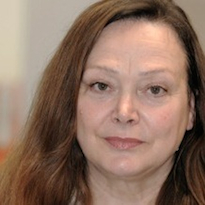Speakers
‹ Back
Dr Elizabeth Pollitzer
Co-Founder and Director, Portia Ltd
CV
Dr Elizabeth Pollitzer is a leading expert on gender, STEM and innovation. She was a founding member of Portia in 1997 and has been active in the gender and science field for over 15 years. Elizabeth’s background is in Computing and Biophysics, with many years spent both teaching and researching in the Department of Computing at Imperial College, University of London. She now heads up Portia Ltd UK and jointly leads the development of the Gender Summits - Quality Research and Innovation - global platform.
Abstract
Abstract:The vision of the 4th Industrial Revolution, as promoted by the World Economic Forum (WEF), promises a future of smart interconnected cyber-physical systems that will transform what individuals, societies and economies will be able to do, and how. In this future, digital technologies and automation help tackle declining economic productivity; compensate for the loss of traditional manufacturing; create new markets; and new ways of creating value, with new business models. The benefits, according to the leading technology executives surveyed by WEF, are that by 2025 90% of the population will have access to Internet; over 50% of Internet traffic will be used to control home appliances; 10% of people will be wearing clothes connected to the Internet; 5% of consumer products will be printed in 3D; 10% of cars in the USA will be driverless; and the first implant of 3D printed liver would have been performed.
This future seem isolated from the challenges and opportunities of the majority of the global population who have not yet benefited from the 2nd Industrial Revolution, or experienced the Internet. A better future for them means access to reliable sources of energy, access to safe water, food security and sufficient nutrition, access to healthcare, and availability of transport. But these challenges are not part of the WEF’s vision of the future, which seems to prioritise the techno-social aspirations of the Global North: they are part of the UN Sustainable Development 2030 Agenda (SDGs), which prioritises the socio-economic and environmental needs of the Global South.
As currently promoted, the 4th Industrial Revolution risks creating an insurmountable digital and economic divide between the Global North and the Global South, and turning back on the efforts to address urgent global challenges and opportunities: how to help feed a world population of 9 billion people; how to help make mega cities more efficient and human-friendly; how to help respond effectively to the more than 700 natural disasters that occur each year; how to help prevent 6 million car crashes happening every year; how to prevent 5 million children dying from lack of safe water and sanitation; how to help monitor and respond to the emergence of new infectious diseases; how to help forecast and prepare communities for anomalous climate conditions and natural disasters; how to help stop illegal trade in protected species and land use; how to help exploit genomics to identify and select seeds and plants that can thrive in adverse environments; how to ensure the wellbeing and sustainability of ecosystem…and many more.